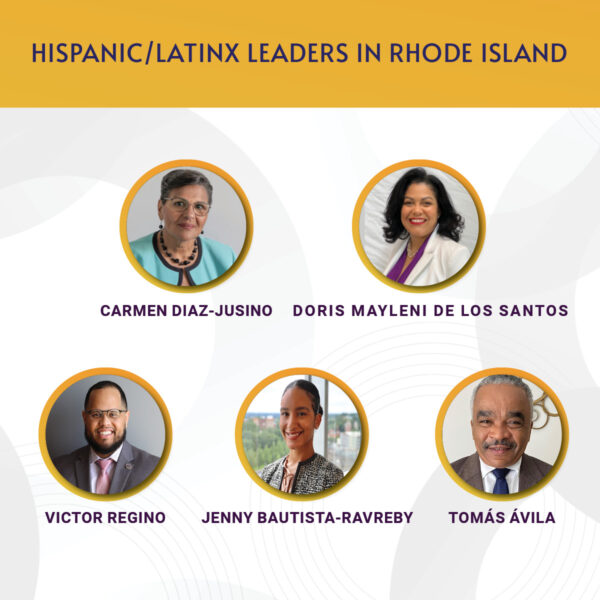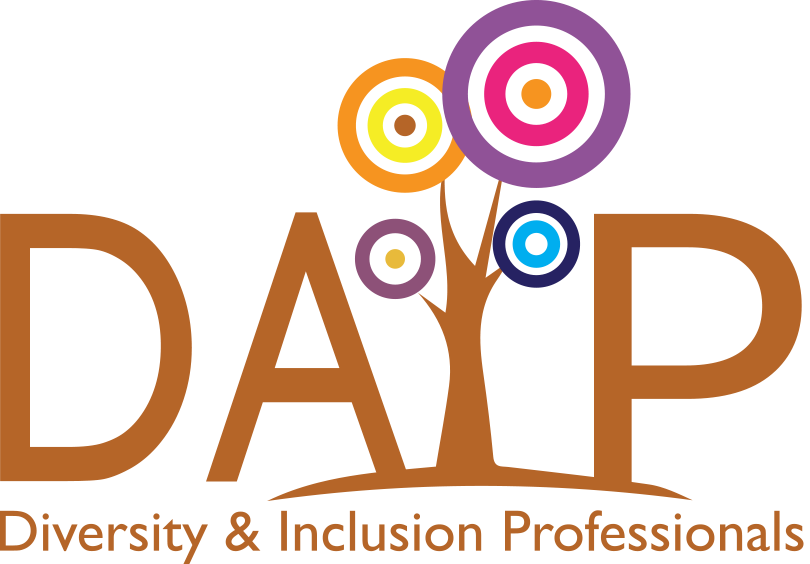
Hispanic Heritage Month, celebrated from September 15th to October 15th, offers a chance to honor the contributions of the diverse and vibrant Hispanic and Latinx Americans. This year’s theme is “Latinos: Driving Prosperity, Power, and Progress in America,” taking a celebratory tone to recognize the significant role that Latinos play in shaping the path of our nation.
While some progress towards equity has been made, the consensus of numerous folks (across sectors and industries) of Hispanic/Latinx heritage that I’ve had conversations with is that there is still an incredible amount of work to be done. While we appreciate the focus on the positive this year, we also want to remind decision-makers in Rhode Island of the discouraging realities of the power structures in America.
The reality is that there are 62.1 million Hispanics living in the United States, representing 18.9% of the total population, and the reality is that number is expected to increase to 29% of the total population by 2050.
The reality is that only 4% of large companies’ most senior executives are Hispanic.
The reality is that 65% of 2022 Fortune 1000 companies don’t have a single Latino member of their board.
The reality is that less than 1.3% of philanthropic dollars are invested in Latino-based organizations.
The reality is that Latinos make up less than 2% of elected officials nationwide (and this figure is a 74% increase since 2001).
Hispanic Heritage Month is an incredible opportunity to get the attention of decision-makers in Rhode Island—to highlight initiatives and solutions that could really move the needle towards equity. So I asked local Latinx leaders the following questions.
What advice do you have for changemakers in Rhode Island (legislators, CEOs, community leaders, etc.) to improve opportunities for the Latinx community? And what do you think leaders can do to help uplift and empower the Latinx community?
Here are their insights and recommendations. Hopefully they can help shift these realities to make prosperity, power, and progress a reality for the Latinx community.
-Amanda Román, on behalf of the DAIP board
Perspective: Victor Regino
CEO, Papi’s Refrescos LLC DBA Island Coquito
The most important pieces of advice I have for changemakers is:
- Listen to the people you’re making decisions on behalf of.
- Don’t take the easy way out. When you are faced with a difficult task or project, it’s easy to give up or shrug it off because “that’s how it’s always been.” Instead, focus on being an intentional change agent in the community, uplift our small businesses, and provide equitable access to federal funding and capital.
Perspective: Tomás Ávila
Associate Director of the Division of Equity Diversity & Inclusion
Prosperity is a fundamental aspect of the American Dream, and Latinos have been integral to the economic growth and dynamism of the United States. From entrepreneurs and business leaders to laborers and service workers, Latinos have made substantial contributions to the workforce. They have built successful businesses, created jobs, and driven innovation across various industries. Hispanic-owned businesses are a testament to the economic vitality brought by this community, providing goods and services, stimulating local economies, and fostering diversity within the business world.
Moreover, Latinos have been pivotal in the political landscape, demonstrating their growing power and influence. The increasing number of Hispanic elected officials at various levels of government highlights their engagement in the democratic process. Their voices have been instrumental in advocating for policies that address the needs and aspirations of the Latino community, such as immigration reform, healthcare access, and education equity. The Latino electorate is a force to be reckoned with, shaping electoral outcomes and policy decisions that impact the entire nation.
This year’s theme also acknowledges the challenges faced by Latinos, including disparities in education, healthcare, and economic opportunities. Addressing these disparities is essential for ensuring equitable access to prosperity and progress for all Americans. It is a call to action to eliminate barriers and ensure that every individual, regardless of their background, can thrive and contribute to the nation’s growth.
My advice for changemakers in Rhode Island is the following.
- Engage in Inclusive Policy Making: Ensure that policies and legislation are inclusive and consider the unique needs and challenges faced by the Latino community. Involve Latino representatives and organizations in the decision-making process.
- Invest in Education: Allocate resources to improve educational opportunities for Latino students. This includes funding for quality bilingual education, after-school programs, and scholarships to make higher education more accessible.
- Support Small Businesses: Facilitate access to capital and resources for Latino entrepreneurs and small business owners. This can help stimulate economic growth within the community.
- Healthcare Access: Improve access to healthcare services, especially for uninsured or underinsured members of the Latino community.
- Cultural Competency Training: Provide cultural competency training for public servants, educators, and healthcare professionals to better serve the diverse needs of the Latino population.
- Data Collection and Analysis: Collect data on disparities within the Latino community and use this information to inform policies and programs aimed at addressing these disparities.
- Affordable Housing: Address affordable housing issues to make housing more accessible to low-income Latino families, thus promoting stability and economic security.
By implementing these strategies, leaders in Rhode Island can work towards uplifting and empowering the Latino community, promoting diversity, and creating a more inclusive and equitable society.
Perspective: Jenny Bautista-Ravreby
Diversity, Equity, and Inclusion Manager at Blue Cross & Blue Shield of Rhode Island
Elevating, empowering, and providing access to the Latinx community is imperative, now more than ever. We continue to grow at a rapid pace, and industries will need to find innovative and strategic solutions to better support such a large segment of the population.
The Latinx community is bonded by similar core values of family, hard work, and a relentless desire to improve our lives. In order to better support the community as a whole, it’s incredibly important that change makers and policymakers understand the nuances within the community—we share commonalities, but are not all the same.
The priorities I’d like for our local leaders and changemakers to focus on are:
- Access to quality healthcare, so that everyone is thriving instead of just surviving in regards to all aspects of their health and well-being.
- Access to homeownership.
- Supporting local small businesses, so that we can make strides towards building independence and wealth for our families for this generation, as well as future generations.
Perspective: Carmen Diaz-Jusino
CEO of Strategic Initiative Officer for Economic Security at the Rhode Island Foundation
To improve opportunities for the Latino Community, changemakers should consider policies such as:
- Education Equity. Equal access to quality education, and getting increased resources to schools in Latino-majority areas.
- Workforce Development Programs that support job training and apprenticeships targeted to Latinos.
- Small Business Support. Creation of loan programs and grants to help Latino entrepreneurs start and grow their businesses.
- Fulfillment of Basic Needs, in the form of access to affordable housing and healthcare.
- Immigration Reform. This is long overdue and will empower not just the Latino community, but the immigrant population that is the fabric of this country.
Perspective: Doris Mayleni De Los Santos
Supplier Diversity Manager for Blue Cross & Blue Shield of RI
The needs of today’s economy and the country’s capacity to keep our global position in the market resides in the ability to support the growth and wellbeing of Latinos. Latinos are growing in population like no other demographic group in the nation, and Rhode Island is not the exception. There are 34,000 Hispanic children enrolled in K-12 grade levels in the State; and approximately 60% of children attending our capital’s city public schools are Latinos, many of whom are English Language Learners.
Latinos in the country represent $3.2 Trillion GDP in today’s economy. If the Latino market was a country, it would represent the 4th largest economy in the world. Latinos start 82% of all new companies in America, they open businesses at three times the rate of the national average and Latina women start businesses at six times the national rate (Latino Community Foundation). Even though Latinas start businesses at six times the national rate, they represent less than 1% of those entrepreneurs who receive venture capital. Latinos accounted for 2% of the growth in U.S. labor force participation, despite accounting for less than 20% of the country’s overall population.
Latinos are the future of our nation and state. The key to Rhode Island’s prosperity is anchored on our ability to invest in that future. Latinos are currently fueling the economy, and will continue to do so in the future. We will not prosper as a state unless we:
- Create the conditions to address the social determinants of health;
- Invest in Pre-K through 16 education;
- Address the housing shortage;
- Increase the homeownership rate;
- Create economic opportunities;
- Support entrepreneurship;
- Fill jobs with a skilled workforce.
Lastly, representation matters. We must ensure Latinos are offered opportunities to excel and to see themselves in positions of leadership at all levels and all fields. Let’s not leave our future behind!

